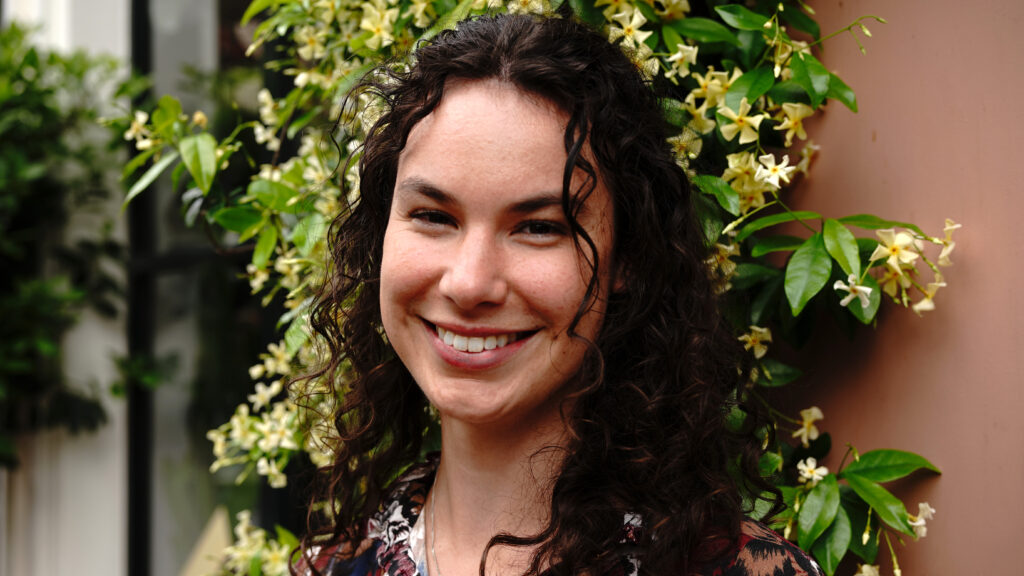I am eager to contribute to the advancement of more sustainable agricultural practices.
In this series, we introduce you to the people behind CropXR. Who are they, what do they do, and why are they passionate about their work for CropXR?

Name: Jenske Aben
What is your professional role within CropXR?
I am a PhD candidate that researches the physiological and mechanistic responses of potato plants to nitrogen deficiency in controlled environments. Or, in other words, how does a potato respond when less nitrogen is available?
Can you describe this role in a nutshell?
Nitrogen is an important nutrient which a plant needs to grow and produce yield. However, the use of nitrogen fertilizers in agriculture has raised environmental concerns. Moreover, regulations in the Netherlands specify the reduction of nitrogen in the environment. Consequently, a limited amount of nitrogen fertilizer is allowed. My goal is to better understand how nitrogen is taken up, stored and assimilated by potato plants. With my study, I aim to unravel which traits are important to improve the nitrogen use efficiency of potato. The environment in which a potato grows hugely influences the functioning of the plant’s traits related to nitrogen use. To minimize the environmental variation, my experiments will, therefore, be performed in the greenhouse.
Why are you driven to contribute to the CropXR project?
I think that it is amazing that this project is a large-scale collaboration of different companies and universities. I strongly believe that collaboration leads to the best outcomes, and I am grateful for the opportunity to be part of such a partnership. It is valuable to hear diverse perspectives and insights from individuals with varied backgrounds and from a wide range of stakeholders. Moreover, I am eager to contribute to the advancement of more sustainable agricultural practices.
What is the main challenge you face?
The behavior of potato plants depends greatly on the environment they grow in, whether in pots or open fields. I need to be cautious when extrapolating greenhouse data to field conditions, as plants can behave very differently in each setting.
What do you personally hope to achieve within CropXR in the next (10) years?In the next ten years, I hope to deepen my knowledge of nitrogen use efficiency in potatoes. Furthermore, I would like to contribute to making agriculture more sustainable by enhancing nitrogen use efficiency of potato. Additionally, I look forward to collaborating with people in the field and building connections with professionals. I believe that working together is the key to making meaningful progress.

